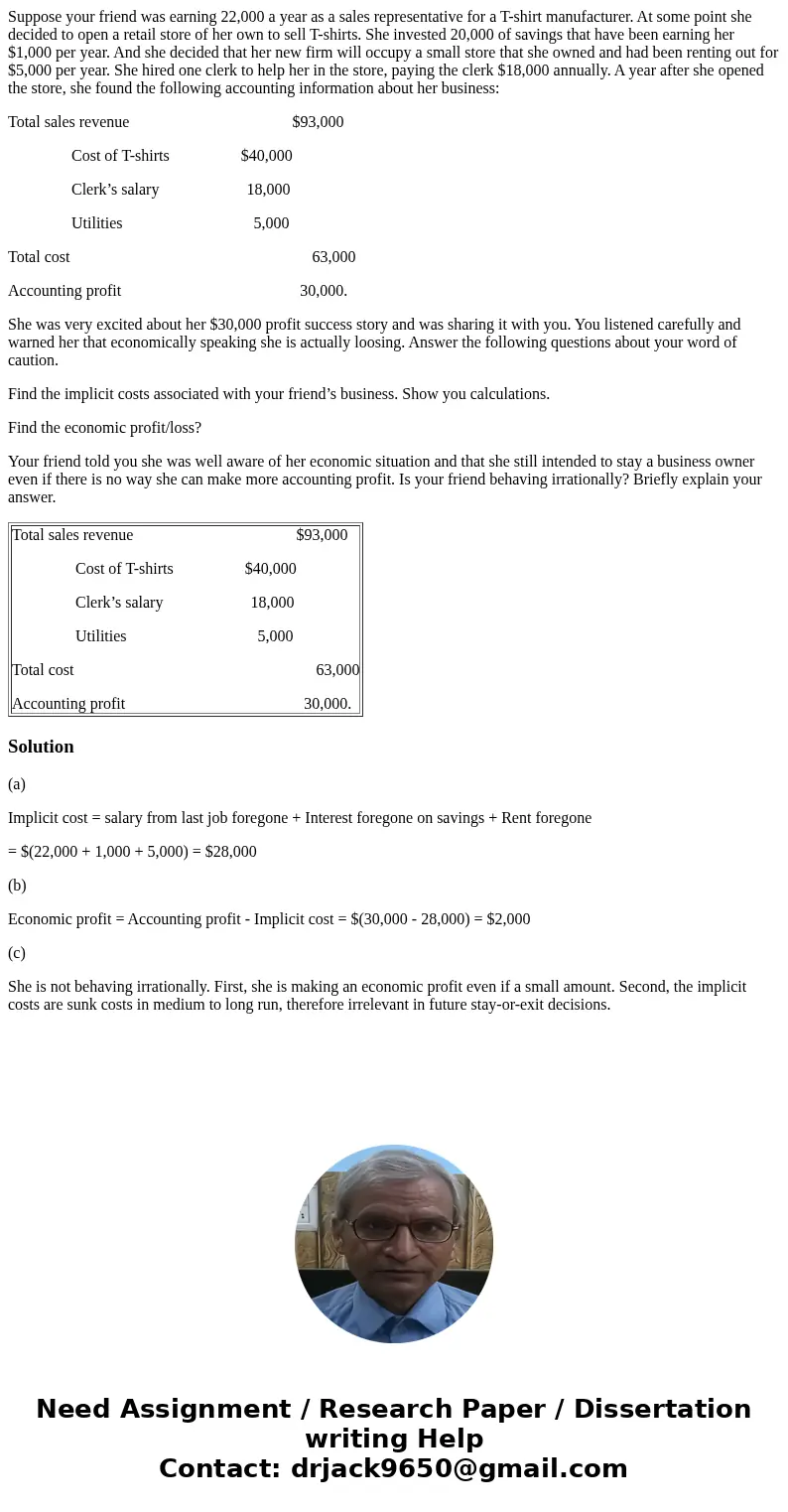Suppose your friend was earning 22000 a year as a sales repr
Suppose your friend was earning 22,000 a year as a sales representative for a T-shirt manufacturer. At some point she decided to open a retail store of her own to sell T-shirts. She invested 20,000 of savings that have been earning her $1,000 per year. And she decided that her new firm will occupy a small store that she owned and had been renting out for $5,000 per year. She hired one clerk to help her in the store, paying the clerk $18,000 annually. A year after she opened the store, she found the following accounting information about her business:
Total sales revenue $93,000
Cost of T-shirts $40,000
Clerk’s salary 18,000
Utilities 5,000
Total cost 63,000
Accounting profit 30,000.
She was very excited about her $30,000 profit success story and was sharing it with you. You listened carefully and warned her that economically speaking she is actually loosing. Answer the following questions about your word of caution.
Find the implicit costs associated with your friend’s business. Show you calculations.
Find the economic profit/loss?
Your friend told you she was well aware of her economic situation and that she still intended to stay a business owner even if there is no way she can make more accounting profit. Is your friend behaving irrationally? Briefly explain your answer.
| Total sales revenue $93,000 Cost of T-shirts $40,000 Clerk’s salary 18,000 Utilities 5,000 Total cost 63,000 Accounting profit 30,000. |
Solution
(a)
Implicit cost = salary from last job foregone + Interest foregone on savings + Rent foregone
= $(22,000 + 1,000 + 5,000) = $28,000
(b)
Economic profit = Accounting profit - Implicit cost = $(30,000 - 28,000) = $2,000
(c)
She is not behaving irrationally. First, she is making an economic profit even if a small amount. Second, the implicit costs are sunk costs in medium to long run, therefore irrelevant in future stay-or-exit decisions.

 Homework Sourse
Homework Sourse